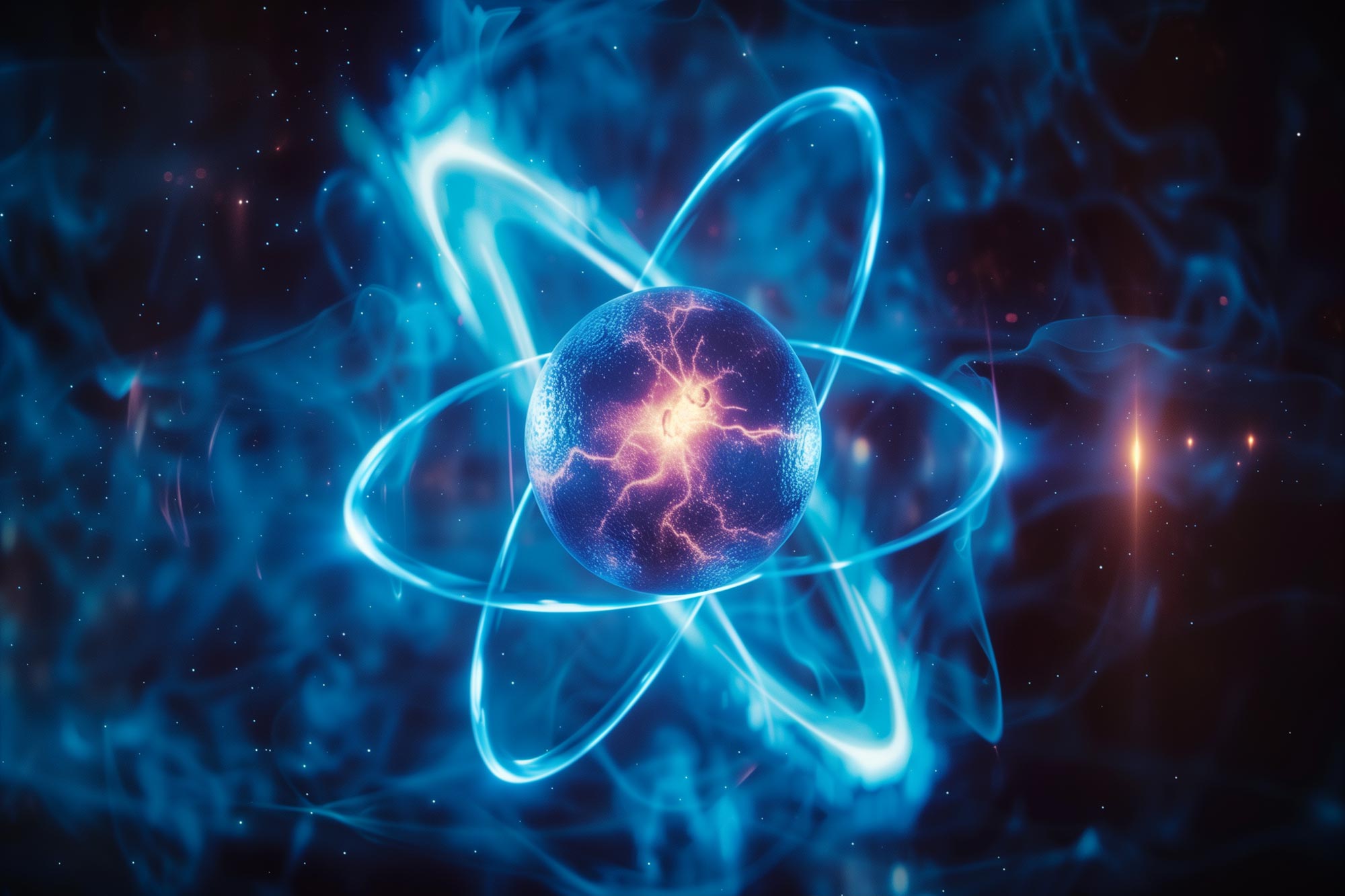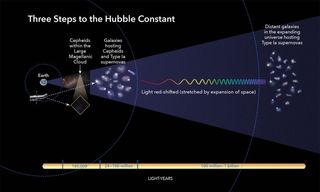The First Nuclear Clock Will Test If Fundamental Constants Change: A Time Revolution
- Update Time : Wednesday, September 4, 2024

The first nuclear clock aims to investigate whether fundamental constants fluctuate over time. This groundbreaking device promises unprecedented precision in timekeeping.
Scientists are on the brink of a major breakthrough with the development of the first nuclear clock, potentially revolutionizing our understanding of time itself. Boasting precision surpassing that of atomic clocks, the nuclear clock will test the stability of fundamental physical constants.
Its implications extend far beyond mere timekeeping; it could provide insights into the very fabric of the universe. As the international scientific community eagerly anticipates its completion, the nuclear clock stands to challenge our concepts of time and propel us into a new era of physics and technology, with potential applications in navigation, communication, and quantum computing.
The Dawn Of The Nuclear Clock
The nuclear clock promises a leap in timekeeping accuracy. Traditional cesium-based clocks could soon give way to superior thorium devices. These groundbreaking clocks are expected to be more precise over longer periods. Scientists are eager to see if fundamental constants, like the speed of light, ever change. This could reshape our understanding of the universe.
Transitioning from cesium to thorium represents a significant advancement. The thorium-based nuclear clock holds the potential to revolutionize how we measure time. Its precision will aid in various scientific fields. It will also improve technologies reliant on exact timing.
Fundamental Constants: Are They Truly Constant?
Fundamental constants are numbers that nature always keeps the same. They help us understand the universe. Scientists have always thought these numbers do not change. Yet, some new experiments might show if this is true.
Long ago, people believed everything in the world could change. But then, they found out about these special numbers. These numbers help planes fly and phones work. They are very important for making things work right.
But, understanding these numbers is hard. Scientists use big machines to study them. They want to know if these numbers stay the same everywhere in the universe. This is a big question. The first nuclear clock might help answer it.
Peeking Into The Heart Of An Atom
The quest for precision in timekeeping reaches a new frontier with the development of the nuclear clock. This innovative device centers on the Thorium nucleus. Scientists focus on this particular isotope because of its potential to facilitate extremely precise measurements of time.
By observing the nuclear transitions of Thorium-229, the clock may reveal tiny changes in fundamental constants. These constants are crucial for understanding the universe’s makeup. The nuclear clock could, therefore, offer insights into physics that were previously out of reach.
Its mechanism relies on the energy state of a Thorium atom’s nucleus. The excited state of this nucleus serves as the clock’s “pendulum”. The Thorium-based nuclear clock is poised to surpass the accuracy of the current atomic clocks. These use electron transitions in atoms like cesium and rubidium.

Credit: scitechdaily.com
Engineering The Impossible
Nuclear clocks promise unprecedented time measurement accuracy. Scientists face significant technical challenges to make this a reality. Key obstacles include isolating atoms and maintaining consistent oscillations. Temperature fluctuations and magnetic fields can disrupt the clock’s operation. The design of nuclear clocks involves cutting-edge materials and innovative engineering.
Researchers are developing methods to stabilize atomic behavior. This ensures the clock’s precise ticking. New technologies are emerging to shield the clock from environmental effects. These innovations help keep the clock accurate over time. The progress in this field could lead to testing fundamental constants of nature.
Implications For Science And Technology
The first nuclear clock promises big things for science and tech. It will check if things we think are constant in the universe actually change over time. This is huge because it helps us understand the universe better.
One cool use is in space exploration. Imagine a spaceship far from Earth. Nuclear clocks can help it navigate more accurately than ever. This means safer and more precise space travel. So, astronauts can explore new places with better tools.
Testing The Invariance Of Nature
The first nuclear clock promises to revolutionize our understanding of time and fundamental constants. Scientists propose that such clocks could test the stability of nature’s constants. These constants, long thought to be unchanging, might vary over time.
Nuclear clocks are expected to be more precise than atomic ones. They will measure processes in the nucleus of atoms. This is different from today’s atomic clocks that use electron transitions. The high precision allows for detecting even minute changes in constants like the fine-structure constant and the electron-to-proton mass ratio.
Discoveries from nuclear clock research could lead to new physics, beyond the current understanding. Such breakthroughs may include insights into dark matter and the expansion of the universe.
A New Frontier In Timekeeping
The nuclear clock marks a big step in how we measure time. This new technology uses the heart of atoms to keep time. It’s much more precise than any clock we’ve used before. Experts believe these clocks will help us understand if the universe’s rules ever change. This could unlock secrets about everything around us.
Looking forward, nuclear clocks might guide us in space travel and navigation. They could improve our GPS systems, making them accurate to within millimeters. Scientists also see a big role for them in studying dark matter. This is a mystery that has puzzled them for years. By being so accurate, these clocks can help us see tiny changes in the natural forces. This could be key to big discoveries.

Credit: www.quantamagazine.org
Challenges And Controversies
The first nuclear clock promises to revolutionize our understanding of time. Yet, it sparks intense debates among physicists. Some question its potential to maintain consistent accuracy. Others wonder if it can truly detect variations in fundamental constants. These discussions are crucial for the project’s advancement.
On the other hand, ethical and safety considerations are paramount. The use of nuclear materials raises concerns. Strict protocols are in place to mitigate risks. The scientific community is working to ensure that safety is not compromised. Public trust is essential for progress in this innovative field.

Credit: www.space.com
Frequently Asked Questions
What Is A Nuclear Clock?
A nuclear clock uses the precise transitions of nuclear energy levels to measure time. Unlike atomic clocks that rely on electron transitions, nuclear clocks focus on the nucleus, promising unparalleled accuracy. This technology could redefine timekeeping standards with its potential for extreme precision.
How Does The First Nuclear Clock Work?
The first nuclear clock operates by tracking the energy transitions within the nucleus of an atom, a method significantly more stable and exact than traditional atomic clocks. This approach minimizes environmental interference, leading to a remarkably precise time measurement, revolutionizing how we understand and utilize time.
Why Test If Fundamental Constants Change With A Nuclear Clock?
Testing if fundamental constants change using a nuclear clock can validate the consistency of natural laws across time and space. This research potentially uncovers new physics, offering insights into the universe’s workings and enhancing our understanding of the fundamental forces that govern reality.
What Makes Nuclear Clocks More Accurate Than Atomic Clocks?
Nuclear clocks surpass atomic clocks in accuracy due to the more stable and less perturbable nature of nuclear energy levels compared to electron transitions. This stability minimizes external disturbances, leading to an unprecedented level of timekeeping precision.
Conclusion
As we anticipate the unveiling of the first nuclear clock, its potential to redefine time measurement looms large. This groundbreaking innovation not only promises unprecedented precision but also the chance to probe the constancy of nature’s laws. The quest to understand our universe’s fabric may soon enter an exciting new chapter, courtesy of this extraordinary timekeeper.


















paito taiwan
I’m not sure exactly why but this weblog is loading incredibly slow for me.
Is anyone else having this problem or is it a issue on my end?
I’ll check back later on and see if the problem still
exists.